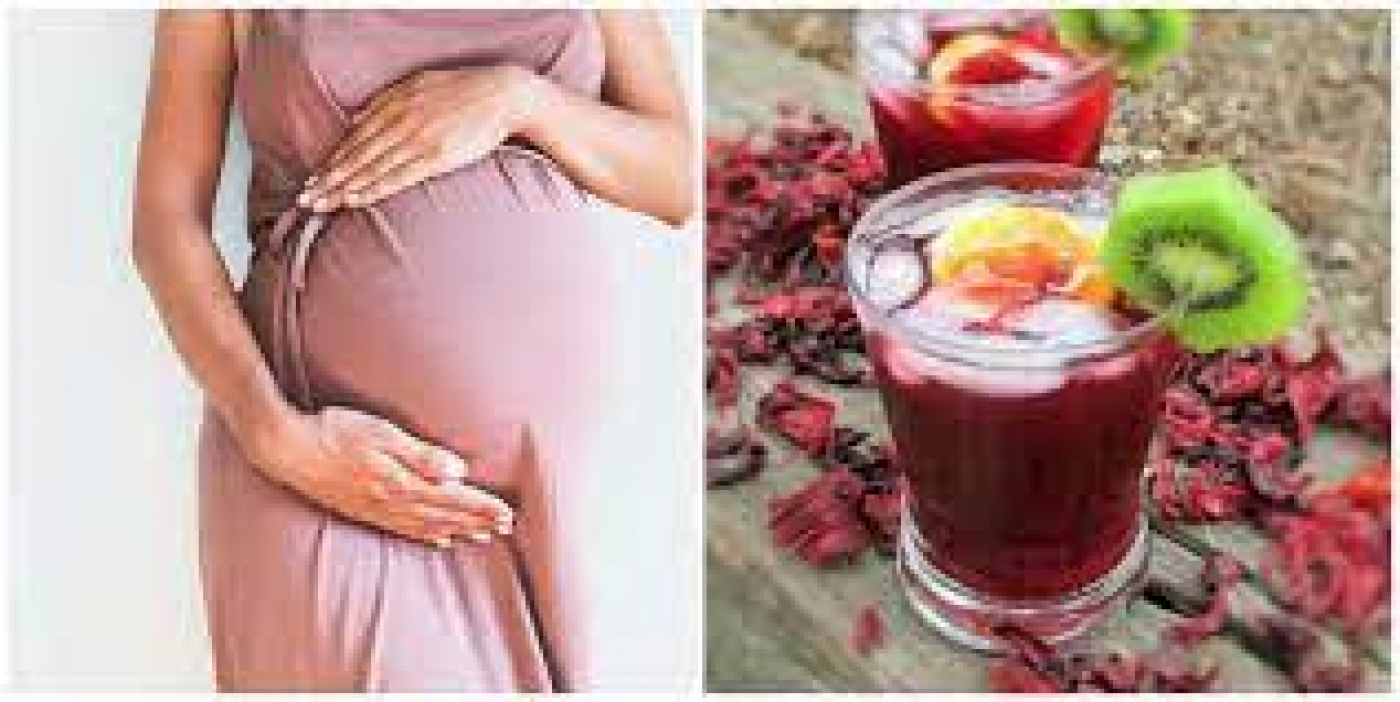Responses from the experts followed the conclusion reached by a team of researchers, who carried out a study on the safety of Hibiscus sabdariffa on female rats, that there are enough concerns to discourage pregnant women and lactating mothers from consuming Zobo.
According to a 2013 review on the study, titled ‘Hibiscus sabdariffa L: Safety and Efficacy during Pregnancy and Lactation’, published in peer-reviewed journal, Planta Medica, there was no scientific evidence to support the use of Hibiscus sabdariffa during pregnancy and lactation.
It, however, stated that there is in vitro evidence from animal studies that the seeds of Hibiscus sabdariffa have a lactogenic effect.
“Animal studies have also shown that there is delayed puberty, elevation of body weight, and Body Mass Index in female rats that consumed extracts of Hibiscus sabdariffa.
“Caution should be exercised with the use of Hibiscus sabdariffa during pregnancy and lactation till human research is conducted to determine its safety. There is a need to be cautious when using medications with Hibiscus sabdariffa,” the researchers advised.
In another 2016 paper published on the ‘Use, Safety, Efficacy, and Pharmacology of Hibiscus sabdariffa during pregnancy and lactation’, it was suggested that its use by women during lactation calls for in-depth understanding of its efficacy and potential for causing harm during pregnancy and lactation.
The lead researcher, Nkechi Enwerem of the Division of Nursing, Howard University, USA, said the seed and calyces of Hibiscus sabdariffa have been shown to possess some beneficial therapeutic effects and that there is no strong clinical evidence supporting the use of Hibiscus sabdariffa in pregnancy or during lactation.
“Based on in vitro studies, the aqueous seed extract of Hibiscus sabdariffa produced an increase in serum prolactin in a dose-dependent manner in lactating rats. At a dose of 1600mg/kg the extract, it produced a similar lactogenic activity as compared to Metoclopramide treated group,” she stated.
Enwerem further stated, “The consumption of the aqueous extract of Hibiscus sabdariffa calyces during lactation caused a decreased maternal fluid and food intake, increased postnatal weight gain and delays the onset of puberty in the female offspring of Sprague-Dawley rats.”
She, thereafter, warned that Zobo drink should be avoided during pregnancy and lactation.
However, the claims were countered by the gynaecologists, who said the findings lacked scientific evidence as they had not been proven in humans.
One of them, a Consultant Obstetrician and Gynaecologist at the Nnamdi Azikiwe Teaching Hospital, Akwa, Anambra State, Dr. Stanley Egbogu, while speaking with PUNCH HealthWise said it is not known to gynaecologists that drinking Zobo has any effect on pregnant women or lactating mothers.
“Before you can confirm that in pregnant women, you need to extrapolate it in human beings first. Maybe in young ladies who are trying to get pregnant and then, try it in pregnant mothers and lactating mothers to see if it will affect breastfeeding.
“It’s not a known fact to gynaecologists that drinking Zobo has any effect on pregnant women or lactating mothers. We see it as one of those drinks. They should try and carry out the experiment on human beings first.”
Dr. Egbogu said the level of evidence by the studies was low and it does not prove that pregnant women and lactating mothers should not drink Zobo.
He said, “The level of evidence is still low and it’s still in level one. If they can come to level two or three, they can now say Zobo is not safe in pregnancy. I don’t think Zobo is not safe for pregnant women, so they should try and do it in human beings.
“For them to say it causes miscarriage, then it’s a very serious issue, but they need to prove it in human beings because if a woman drinks it and has a miscarriage, you cannot prove that it is the drink that caused the pregnancy loss.”
Continuing, he said, “Maybe the reason they are saying it causes miscarriage is because of the colour, which makes it look like blood. It might just be a psychological thing.
“Looking at it, what is in the content that will make one have a miscarriage and what quantity does one need to take to have a miscarriage? For me, the studies are not substantial.
“If it is scientifically proven, I will be among the people that will say it should not be taken by pregnant women. But for now, we have not observed that scientifically.”
Corroborating the stance of Dr. Egbogu, the Assistant Chief Dietitian, Ajeromi General Hospital, Ajegunle, Olusola Malomo, said consuming Zobo during pregnancy or lactation has no negative impact.
He noted that the hibiscus leaf is rich in antioxidants and can help to prevent cell damage.
He, however, said processing of the drink must be done hygienically.
Malomo, who is also a former council member of the Nutrition Society of Nigeria said, “It’s okay for pregnant women to take Zobo. It contains hibiscus and it has antioxidants. It will help to stimulate more milk production because of the nutrients available in it.
On the claims that pregnant women and lactating mothers should not drink Zobo, he said, “I don’t know the rationale for that but some of the components of Zobo drink are cloves, ginger and garlic, which are antioxidants.
“And when you look at the benefits of antioxidants in the food, they are much and that is a good reason for pregnant women and lactating mothers to take it, except when it is indicated that someone should not take ginger or garlic or any of the ingredients used to prepare the drink. Aside from that, hibiscus is good for the body.”
Source: HealthWise







